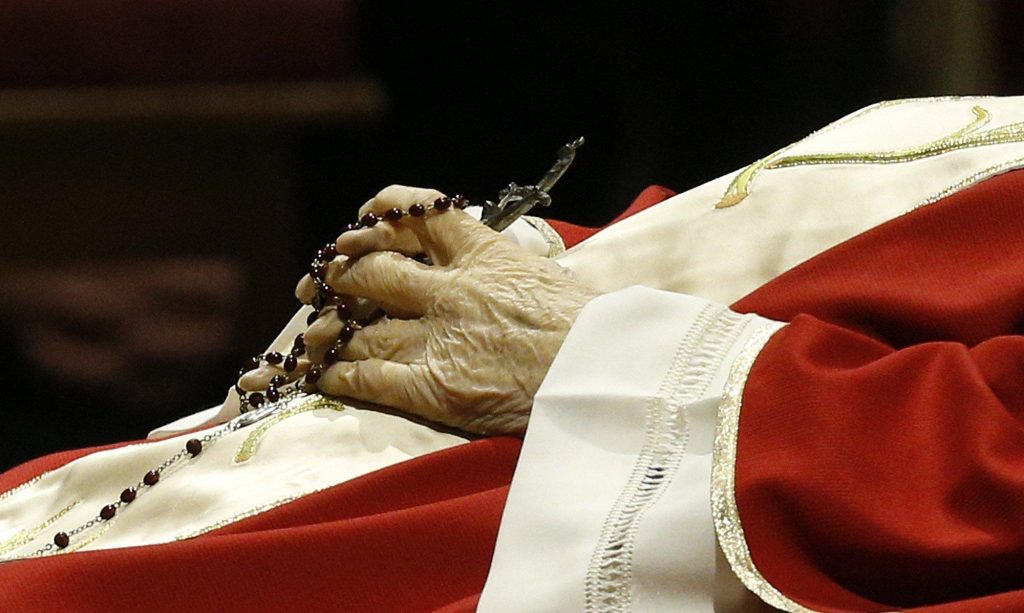
The Church has laid to rest Pope Benedict XVI, who in life soared to incredible heights while always striving to see the face of God.
He was a man whose earthly journey never seemed to follow the path one might expect. Much of his childhood and teen years in Germany were shaped by the oppression of the Nazis and the horrors of World War II. But unlike many of his generation, his experience of the war didn’t leave him despairing of human nature, but hopeful in the love of Jesus Christ. It was a hope he held for himself and shared with the world until his final breath.
He was a man who wished for himself the quiet life of a scholar. But his intellect and insight elevated him to the highest ranks of the world’s theologians, bringing him attention and accolades from his colleagues. By all accounts, Benedict was an unassuming man who found himself at the center of momentous historical events, chief among them the Second Vatican Council, where he was deeply involved in drafting some of the most consequential documents of the council – documents that are still guiding the direction of the Church 60 years later and will do so far into the future.
A humble man, he was given immense authority as the prefect of one the most important offices in the Church, the Congregation for the Doctrine of the Faith, which has the mission of explaining and defending the teachings of the Church. During his 24 years in that role, he wrestled with difficult questions and controversies:
• Was liberation theology an extension of Christ’s message of caring for the poor and the oppressed or had it strayed too far from Christ’s teachings to embrace elements of Marxism?
• How to heal the rupture that developed when segments of the Church rejected the developments of Vatican II.
• What is the role of women in the Church?
• How should the Church respond to the moral relativism that has been on the ascent throughout the world?
• And most painfully, how should the Church respond to the clergy sex abuse scandals that have erupted in countries around the world?
Before his election as pope in 2005, many around the globe saw him as an inflexible idealogue standing
in the way of change and progress. They expected the “Panzer cardinal” to become the “Panzer Pope.”
But that was not the pope the world saw. We saw a gentle teacher who took on the mission of reconnecting Catholics to their faith, educating us about the saints, the Church fathers, and, of course, always about Christ.
In fact, we discovered that the purpose of his papacy and his entire life, as Pope Francis said in a general audience in the days after Pope Benedict’s death, was “to accompany us to an encounter with Jesus.”
The living Christ “was the goal to which Pope Benedict led us, taking us by the hand,” Pope Francis said. “May he help us to rediscover in Christ the joy of believing and the hope of living.”
Pope Benedict never wavered from his mission to bring people to Christ. And in the testament he wrote that was released after his death he offered all of us encouragement. “Stand firm in the faith! Do not let yourselves be confused!” he wrote.
“The reasonableness of faith has emerged and is emerging again,” he added. “Jesus Christ is truly the way, the truth and the life – and the Church, with all its inadequacies, is truly his body.”
As he did at the start of his papacy, at the end of his life Pope Benedict asked for our prayers. “I humbly ask: pray for me, so that the Lord, despite all my sins and inadequacies, may receive me into his eternal dwelling.”
For Pope Benedict, we offer this familiar prayer: Eternal rest grant unto him, O Lord, and let perpetual light shine upon him. May his soul and the souls of all the faithful departed, through the mercy of God, rest in peace. Amen.









